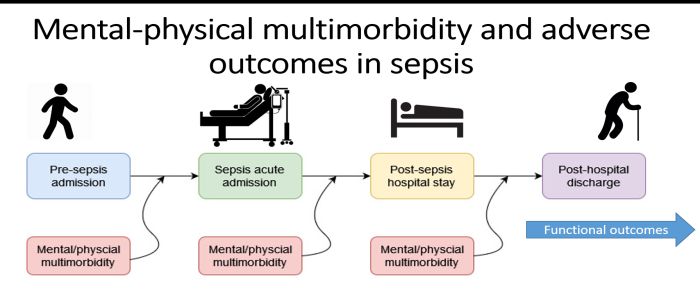Co-existing mental and physical multimorbidity, adverse events, and longer term outcomes in hospitalised patients with sepsis
Supervisors:
Dr Nazir Lone, Usher Institute (University of Edinburgh)
Prof Jacques Fleuriot, Artificial Intelligence and its Applications Institute (University of Edinburgh)
Professor Manu Shankar-Hari, Centre for Inflammation Research (University of Edinburgh)
Summary:
Sepsis is a common, life threatening condition, causing over 45,000 deaths annually. Sepsis survivors commonly experience new physical and mental health problems. Multimorbidity is common in patients who develop sepsis, of whom 20% of critically ill patients have mental health comorbidity, and is associated with higher mortality and post-discharge rehospitalisation. However, the impact of co-existing mental and physical multimorbidity in the context of sepsis is unclear. In particular, its impact on adverse events, outcomes and recovery has not been previously investigated.
The overall aim of the studentship is to evaluate the impact of co-existing mental and physical multimorbidity on in-hospital adverse events and outcomes, and longer term recovery, for hospitalised patients with sepsis in order to inform improvements in care quality.
During the studentship, epidemiological analyses will be undertaken to determine associations between co-existing mental illness/physical multimorbidity and both acute outcomes and post-discharge recovery, underpinned by explicit causal frameworks. Subsequently, clusters of mental/physical multimorbidity will be examined using artificial intelligence methods.
The studentship will provide training in epidemiology, causal inference, and machine learning methods. The student will benefit from the vibrant, academic environment in the Usher Institute and synergistic learning from other multimorbidity work undertaken by the team (https://edin.ac/3CqoERz).


